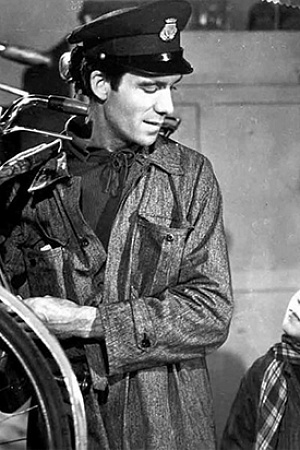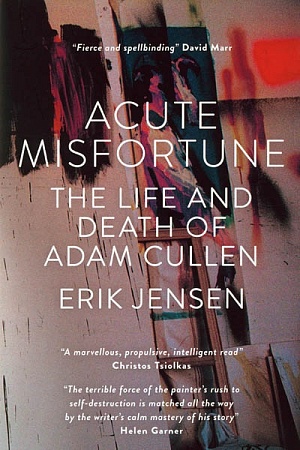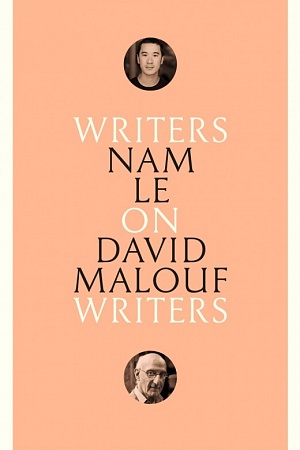The narrow road to influence
Fifteen years ago, the new Rudd government announced the creation of the Prime Minister’s Literary Awards (PMLAs), to be administered by the Minister for the Arts. There were two prizes at the outset – fiction and non-fiction – each worth $100,000 – tax free to boot. Given the precarious incomes of most Australian writers, the prizes could not have been more welcome. Later, after some lobbying, young adult and children’s fiction were added, followed by poetry and Australian history. Sensibly, like other literary prizes, the PMLA organisers decided in 2011 to reward all the shortlisted authors, not just the winner.
So far, so good.
Doubts soon arose when, first, Kevin Rudd and then Tony Abbott chose to exercise the prime minister’s prerogative to overturn the judges’ decision. Rudd, possibly troubled by the title, deemed Frank Bongiorno’s The Sex Lives of Australians unacceptable and gave the prize to Ross McMullin’s Farewell, Dear People. The following year, Abbott declared Richard Flanagan’s The Narrow Road to the Deep North and Steven Carroll’s A World of Other People co-winners in the fiction category. We learned later, from Les Murray no less, that Carroll’s novel was the judges’ unanimous first choice. Writing in ABR Arts, I asked: ‘Have we really come to this? Taxpayers fund these awards: why should they be in a politician’s personal gift?’
The shortlists for this year’s PMLAs can be viewed at https://www.arts.gov.au/pm-literary-awards. As with all prizes, there are some curious inclusions and exclusions, but quality, we always hope, will prevail, notwithstanding prime ministers’ sentimental attachments.
Three features of this year’s awards are surprising. Of the ten judges serving on the fiction/poetry and non-fiction/Australian history panels, eight live in New South Wales. All five of those appointed to judge our best non-fiction and Australian history of the year are in New South Wales. It’s obvious that the authorities take seriously Paul Keating’s old adage: ‘If you don’t live in Sydney, you’re just camping out.’
Remarkably, six of those ten judges have close associations with The Australian newspaper. This includes no less than three literary editors (including the current one, Caroline Overington). The other three are Troy Bramston, a senior writer and columnist with The Australian, Peter Craven (a frequent columnist), and Chris Mitchell, a former Editor-in-Chief (2002–15) and current columnist.
No other media organisation is represented on these two panels. How can such a preponderance be justified? Try to imagine the furore if the Booker Prize or the Pulitzer Prize were dominated by a single media organisation – let alone the Murdoch press. We know that the Morrison government appointed these panels prior to the May 2022 federal election. It’s further proof of that regime’s cosy association with News Corp.
Finally, and not for the first time, the timing of the PMLA ceremony has dismayed booksellers and publishers. It’s to be held on 13 December, in Launceston. That gives the book industry all of eleven days to galvanise sales before Christmas.
Mark Rubbo, managing director of Readings, told Advances:
I think the Prime Minister’s Literary Awards are the worst-run prizes in Australia; there is no consistency in the timing of the announcements of either the shortlist or the winner, giving neither booksellers nor publishers the opportunity to promote the shortlisted and winning authors. The 13 December date for the announcement is a perfect example of this; there will be no time for booksellers to get copies of the winners in time for Christmas, and therefore no point in publishers expending resources in promoting these books. These prizes should be amongst the most lauded and talked about in the country; the ad hoc way they are scheduled suggests that the prime minister and the minister for the arts have little respect for, or understanding of, the work of Australia’s authors.
Readings works closely with major prizes, such as the VPLAS, the Stella and the Miles Franklin, and have worked hard to promote the shortlists and the winners – with growing success. Those prizes understand it is not just about giving writers some money but also about helping those writers find readers and enhancing their careers.
We put these concerns to the organisers and received this statement from a departmental spokesperson for the PMLAs:
The Prime Minister’s Literary Awards recognise and celebrate the exceptional literary talents of Australians. Each year the Awards’ judges are selected from experts across the literature industry, and panels comprise authors, illustrators, poets, historians, academics, publishers and journalists. Appointments to the 2022 panels were made by the previous Government in early 2022.
Each year the judges and the composition of the panels are reviewed. Diversity, in all ways including across geographic location, gender, expertise and differing backgrounds, will be considered by the current government for the appointment of the 2023 Awards’ judges.
The Awards have been hosted in a range of capital cities since they began, including Brisbane, Melbourne, Sydney and Canberra. This year a regional location has been selected, reflecting the importance of promoting literary excellence in diverse communities.
Considerations made when selecting the Awards date include parliamentary sitting requirements and the availability of the Prime Minister in considering the Award recommendations. Planning for future dates is under careful consideration.
Everyone at Australian Book Review – like writers, publishers, booksellers, and readers in general – wants the PMLAs to flourish. So they should, as our principal national awards, with a hefty price-tag from the federal government that might otherwise be used to bolster the risible budget allocated to literature by the Australia Council. But until such time as the PMLAs are delivered promptly, with representative juries and free of sectional interests, they seem doomed to irrelevance – precious for the honoured writers, but otherwise about as consequential as a hill of beans.
Peter Rose
Disclosure: The Editor was a PMLA judge in 2009 and was shortlisted for poetry in 2013.










Comment (1)
While the writing quality of the judges’ reports this year might be politely described as uneven, the panels as unrepresentative, and the scheduling of the awards ceremony as untimely, the central problem is recurring political manipulation. It has been a habit of both Coalition and Labor governments. What I find puzzling, however, is that State and Territory prizes do not seem to experience the same difficulties. If there has been political interference – and, most egregiously, direct intervention of the kind that resulted in my book 'The Sex Lives of Australians: A history' being vetoed for the 2013 Prime Minister’s Prize – it has not come to light at the sub-national level. In my experience as, at different times, a judge and shortlisted author, the New South Wales awards enjoy warm bipartisan support and are administered with great professionalism by the State Library of New South Wales. The ceremony is a wonderful celebration that kicks off History Week.
The new federal government likes to talk about its commitment to orderly process. It would do well to apply the high standards it professes to these awards.
Leave a comment
If you are an ABR subscriber, you will need to sign in to post a comment.
If you have forgotten your sign in details, or if you receive an error message when trying to submit your comment, please email your comment (and the name of the article to which it relates) to ABR Comments. We will review your comment and, subject to approval, we will post it under your name.
Please note that all comments must be approved by ABR and comply with our Terms & Conditions.